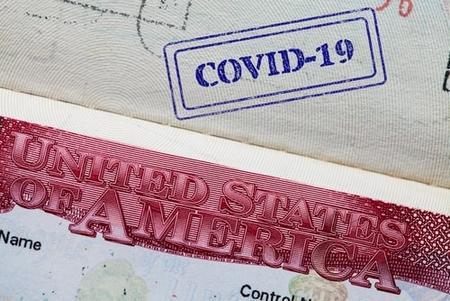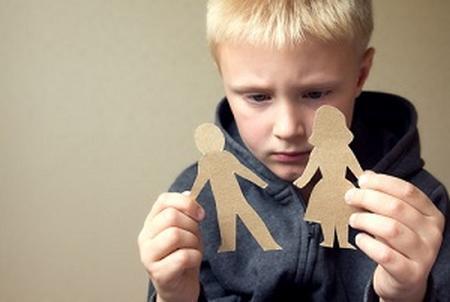Recent Blog Posts
When Do Illinois Courts Order Restrictions on Parenting Time?
 When parents get divorced, their children’s best interests and well-being are paramount when determining an appropriate allocation of parental responsibilities and parenting time. In many cases, protecting a child’s best interests means ensuring that they can spend significant time with both parents after the divorce. However, there are situations in which restricting parenting time is necessary to ensure a child’s safety.
When parents get divorced, their children’s best interests and well-being are paramount when determining an appropriate allocation of parental responsibilities and parenting time. In many cases, protecting a child’s best interests means ensuring that they can spend significant time with both parents after the divorce. However, there are situations in which restricting parenting time is necessary to ensure a child’s safety.
Grounds for Restricted Parenting Time
In Illinois, it is fairly common for a parenting time schedule to allocate more time to one parent than the other, whether because the parents agree to this arrangement or the court determines that it best meets the children’s needs. However, a parenting time restriction is a much more serious matter, and it is only ordered by the court when there is sufficient evidence that a parent has endangered a child’s physical or mental health or development. In some cases, a restriction will reduce or even eliminate a parent’s allocated parenting time, but other options are available to the court depending on the circumstances.
Common Forms of Negligence in Illinois Motorcycle Accidents
 Motorcycle crashes are not especially common in Illinois, but they are especially fatal. In 2018, for example, less than 1 percent of all Illinois traffic accidents involved a motorcycle, but more than 12 percent of all fatal motor vehicle accidents included at least one motorcyclist. Injured motorcyclists who survive accidents, as well as family members of those who do not, should work with an experienced attorney to demonstrate negligence and recover fair compensation through a personal injury or wrongful death claim.
Motorcycle crashes are not especially common in Illinois, but they are especially fatal. In 2018, for example, less than 1 percent of all Illinois traffic accidents involved a motorcycle, but more than 12 percent of all fatal motor vehicle accidents included at least one motorcyclist. Injured motorcyclists who survive accidents, as well as family members of those who do not, should work with an experienced attorney to demonstrate negligence and recover fair compensation through a personal injury or wrongful death claim.
Motorcycle Crashes Caused by Unsafe Driving
Many Illinois motorcycle accidents are caused by the negligent behavior of a driver, which can take many different forms. Some common examples include:
- Speeding - Motorcyclists and drivers of passenger vehicles alike are often tempted to exceed the speed limit or travel at speeds that are unsafe for the conditions in which they are driving. Speeding makes it easier for drivers to lose control and more difficult to react in time to prevent a collision.
Will Getting a Divorce in Illinois Delay My Retirement?
 Preparing for retirement is a lifelong process that requires careful planning and thoughtful goal setting. Most married couples work on their retirement plan together, with many expecting to rely on savings that both spouses have accumulated throughout their lives and careers. However, when your marriage ends in divorce, those retirement plans can be turned upside down, and you and your spouse will likely need to adapt your retirement goals for your new life circumstances. In some cases, this means delaying your retirement date, but there may be other options as well.
Preparing for retirement is a lifelong process that requires careful planning and thoughtful goal setting. Most married couples work on their retirement plan together, with many expecting to rely on savings that both spouses have accumulated throughout their lives and careers. However, when your marriage ends in divorce, those retirement plans can be turned upside down, and you and your spouse will likely need to adapt your retirement goals for your new life circumstances. In some cases, this means delaying your retirement date, but there may be other options as well.
What Happens to Retirement Savings in an Illinois Divorce?
What becomes of your retirement savings depends on whether the funds qualify as marital or non-marital assets. If you have a retirement account that was funded entirely before your marriage, it will be considered non-marital property, and you will likely be able to hold onto the entire amount. If you have contributed to an account both before and during your marriage, the pre-marriage contributions may also qualify as non-marital property, though it is important to maintain detailed records to clarify this non-marital portion.
Studies Show Connection Between Immigration and Economic Growth
 Much of the conversation and public perception surrounding immigration in the United States is centered on the effects that it may have on the economy, with proponents of stronger borders frequently arguing that immigrants may take job opportunities from American citizens or become reliant on government resources for support. However, a number of studies in recent years present compelling counterpoints to these claims by showing the positive impact that immigrants can have on the national economy. Such research could prove promising for businesses seeking to hire immigrants, as well as individuals seeking to enter the U.S. for employment purposes.
Much of the conversation and public perception surrounding immigration in the United States is centered on the effects that it may have on the economy, with proponents of stronger borders frequently arguing that immigrants may take job opportunities from American citizens or become reliant on government resources for support. However, a number of studies in recent years present compelling counterpoints to these claims by showing the positive impact that immigrants can have on the national economy. Such research could prove promising for businesses seeking to hire immigrants, as well as individuals seeking to enter the U.S. for employment purposes.
Effects on Growth and Productivity in the Labor Force
Evidence suggests that growth in the size of the native-born labor force in the U.S. is stagnating, in large part due to declining birth rates and the aging of the sizable Baby Boomer generation. Economists argue that immigration can promote consistent growth and fulfill an important role in the workforce, especially in certain areas and industries. U.S. Census data shows that immigrants were the primary driving force of rural population growth over the last decade, and that immigrants make up at least 25 percent of the labor force in occupations ranging from farming and fishing, to maintenance, to food and apparel manufacturing.
Which COVID-19 Immigration Restrictions Are Still in Effect?
 Throughout the COVID-19 pandemic, those seeking entry to the United States as immigrants and nonimmigrants have faced an additional layer of challenges due to executive proclamations restricting travel in the interest of public health. President Biden has relaxed restrictions somewhat, and as vaccines become more widely available and the spread of the virus slows, more restrictions may be lifted. However, for the time being, certain restrictions continue to remain in effect.
Throughout the COVID-19 pandemic, those seeking entry to the United States as immigrants and nonimmigrants have faced an additional layer of challenges due to executive proclamations restricting travel in the interest of public health. President Biden has relaxed restrictions somewhat, and as vaccines become more widely available and the spread of the virus slows, more restrictions may be lifted. However, for the time being, certain restrictions continue to remain in effect.
Suspended Entry for Nonimmigrant Visas
Since June 24, 2020, Executive Proclamation 10052 has prevented entry to the U.S. by any non-citizen using certain types of non-immigrant visas. This includes:
- H-1B visas for temporary employees with specialized occupational knowledge or skills
- H-2B visas for seasonal or intermittent laborers
- J visas for interns, teachers, au pairs, and certain others seeking participation in a cultural exchange program
How Does Contributory Negligence Affect an Illinois Personal Injury Case?
 If you are injured through no fault of your own, you may be aware that in many cases, Illinois law allows you to pursue compensation from a person or party whose negligence is responsible for your injuries. However, questions of negligence can be complicated, and defendants in personal injury cases often attempt to argue that the plaintiff’s own negligence contributed to their injuries. If there is a possibility that you were partially at fault for the accident in which you were injured, you should work with an attorney to determine whether compensation is available.
If you are injured through no fault of your own, you may be aware that in many cases, Illinois law allows you to pursue compensation from a person or party whose negligence is responsible for your injuries. However, questions of negligence can be complicated, and defendants in personal injury cases often attempt to argue that the plaintiff’s own negligence contributed to their injuries. If there is a possibility that you were partially at fault for the accident in which you were injured, you should work with an attorney to determine whether compensation is available.
Contributory Negligence in Illinois
While Illinois recognizes that an injury victim may have contributed to the circumstances causing their injuries, the state does not necessarily prevent them from recovering damages from other negligent parties in these cases. Rather, in determining the availability of compensation, the court will seek to establish the percentage of fault of each party who contributed to the accident. If an injury victim bears 50 percent of the fault or less, they can still recover compensation, but their damages will be reduced by their percentage of fault. On the other hand, if the injury victim bears more than 50 percent of the fault, they will be ineligible for compensation.
How to Share Parental Decision-Making Responsibilities After Divorce
 One of the biggest challenges of being a parent is the responsibility to make important decisions that affect the lives and well-being of your children. Married parents at least have the benefit of being able to confide in and consult with a trusted partner when making such decisions, but for divorced or single parents, this is often not the case.
One of the biggest challenges of being a parent is the responsibility to make important decisions that affect the lives and well-being of your children. Married parents at least have the benefit of being able to confide in and consult with a trusted partner when making such decisions, but for divorced or single parents, this is often not the case.
Even co-parents who get along and communicate well must cope with the challenge of raising their children between two different households, and co-parents who are in conflict with each other tend to face even more significant obstacles. The way that you and your co-parent share decision-making responsibilities depends largely on your family’s unique situation, but an experienced attorney can help you work toward an effective arrangement.
What Kinds of Decisions Are Considered to Be Significant in Illinois?
Under Illinois law, parents have the discretion to make routine decisions regarding their children during their allocated parenting time. However, certain types of significant decisions are governed more specifically according to the terms of a parenting plan. These include decisions regarding:
How Does COVID-19 Affect Public Charge Determinations?
 For many years, immigrants seeking admission to the United States or an adjustment of status have needed to demonstrate that they will be self-sufficient, or in other words, that they will not be a “public charge” reliant on tax-funded public benefits. This issue has been under much debate over the last two years, with the Trump administration’s Public Charge Ground of Inadmissibility final rule taking effect in February 2020 and subsequently being challenged multiple times in federal courts.
For many years, immigrants seeking admission to the United States or an adjustment of status have needed to demonstrate that they will be self-sufficient, or in other words, that they will not be a “public charge” reliant on tax-funded public benefits. This issue has been under much debate over the last two years, with the Trump administration’s Public Charge Ground of Inadmissibility final rule taking effect in February 2020 and subsequently being challenged multiple times in federal courts.
Most recently, the question of the public charge rule’s constitutionality is being taken up by the U.S. Supreme Court. However, at least for the time being, the rule remains in effect and can have significant implications on visa and green card proceedings. Further complicating matters is the COVID-19 pandemic and its potential effects on immigrants’ health and employment. As such, it is important for immigrants to work with an attorney who can help them understand how the public charge rule may affect their case.
Pursuing Compensation for Injuries That Affect Your Mobility
 While some car accident injuries require minimal treatment and have a fairly short recovery time, in many cases the effects of an injury are long-lasting, or even permanent. This is especially true of injuries that limit mobility. Such injuries can influence all facets of a person’s life, and it is important for victims to know all of the possible damages for which they can pursue compensation when another driver is at fault.
While some car accident injuries require minimal treatment and have a fairly short recovery time, in many cases the effects of an injury are long-lasting, or even permanent. This is especially true of injuries that limit mobility. Such injuries can influence all facets of a person’s life, and it is important for victims to know all of the possible damages for which they can pursue compensation when another driver is at fault.
Types of Car Crash Injuries That Limit Mobility
A car accident can cause a variety of serious or catastrophic injuries that temporarily or permanently prevent a victim from utilizing their full range of motion. Some common examples include:
- Neck and back injuries - Injuries to the soft tissue and vertebrae in the neck and back can cause significant pain, and an injured person may need to remain mostly immobile throughout recovery.
How to Address Debt Before Your Illinois Divorce
 The outcome of a divorce is heavily influenced by all aspects of the couple’s marital finances, including both assets and debts. Any marital debt remaining at the time of the divorce may need to be divided equitably between both spouses, and this can lead to complications with creditors in the future. Addressing debt before filing for divorce may help you to simplify the divorce process and protect yourself from financial liability.
The outcome of a divorce is heavily influenced by all aspects of the couple’s marital finances, including both assets and debts. Any marital debt remaining at the time of the divorce may need to be divided equitably between both spouses, and this can lead to complications with creditors in the future. Addressing debt before filing for divorce may help you to simplify the divorce process and protect yourself from financial liability.
Types of Marital Debt to Address
It may surprise you to learn that, as with assets, debts incurred by either or both spouses during the marriage are generally considered to belong to the marital estate, meaning that they will factor into the division of assets and debts in the divorce. Common marital debts that divorcing couples must contend with include home mortgages, credit card debt, and vehicle loans. Student loans may also qualify as marital debt if a spouse continued their education during the marriage, especially for the purposes of better providing for the family.
 English,
English,
 Spanish,
Spanish,
 Polish,
Polish,
 Urdu
Urdu













 Make a Payment
Make a Payment



